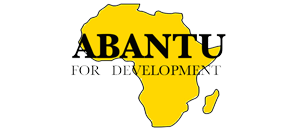Our History
Abantu for development

ABANTU has helped to strengthen the capacity of women to participate in decision-making, to influence policies from a gender perspective, and to address inequalities and injustices in social relations. The Women’s
Manifesto Coalition hosted by ABANTU has been effectively used to advance ABANTU’s goal in this thematic area. Several activities have been undertaken to this end, with satisfactory outcomes. Although the ultimate goal of getting more women in parliament and other decision-making positions has been an uphill task, there has been enhanced gender awareness with more women getting actively involved in political processes. With regards to national general elections, there has been a steady increase in women’s involvement in various
capacities: as election observers, polling agents, electoral officers and reporters.
Other specific outcomes include:
• The institutionalisation of a biennial conference of District Assemblywomen from all the districts in Ghana since 2003, where Assemblywomen continue to meet, learn, share, reflect and chart new
directions towards women’s increased participation and effectiveness in the
governance process,
• An inter-party caucus has been formed to advocate for women’s political of participation, following a yearly modular training programme organised by ABANTU, in collaboration with Friedrich Ebert Foundation (FES) and
Women in Broadcasting (WIB) since 2006. It was based on a seven month modular course developed and used in training women from seven political parties in Ghana who subsequently set up the caucus.
• Recommendations for effective strategies to enhance women’s participation in politics came out of a number of workshops on the theme ‘Preparations to enhancing women’s participation in politics in election
2008’. These have been used to strengthen ABANTU’s strategies for enhancing women’s political participation. For example in 2008, ABANTU’s advocacy and capacity building activities targeted women aspirants, the electorate and the media. Twenty-four trained mentors including nine ABANTU staff participated in the 2008 elections as
officially accredited election observers In mobilising the various groups, actors and interested parties around the idea of developing and producing a Women’s Manifesto for Ghana document, there was the acceptance that women are not homogenous. Women differ in various aspects. However, in initiating the idea to develop The Women’s Manifesto for Ghana, ABANTU recognised that women can draw similarities from their experiences as a marginalised people and work together and build a common platform that would enable them demand redress of their concerns. The document was researched, developed and produced by the collective effort of The Coalition on the Women’s Manifesto for Ghana composed of women’s
organisations, various civil society groups, NGOs, policy-makers, representatives of government Ministries, Departments and Agencies (MDAs), organised labour, professional organisations, media women and men, interested individuals and representatives of registered political parties. Major achievements under the production of the Manifesto include:
• The formation of a broad coalition of NGOs and other civil society organisations as the institutional framework to work collaboratively to promote the wider dissemination, acceptance, use and implementation of The Manifesto demands by government, political parties, constitutional bodies, the legislature, the judiciary, law enforcement agencies as well as by CSOs themselves
• The document has been translated into four (4) local languages: Akan, Dagbani, Ewe, and Ga to promote wider dissemination among a wide range of users who can read and write in the selected local languages. This process has strengthened women’s indigenous knowledge and participation Members of the Women’s Manifesto Coalition mobilising and harnessing energies for the task of promoting gender justice in governance processes using local languages
• The Manifesto is used as required course material in some tertiary institutions in Ghana
• The Manifesto has been adopted by the Commonwealth Foundation as adocument of best practice, while the African Gender Institute in South Africa, civil society organisations in Uganda, Liberia, Sierra Leone and Gambia have consulted with the Coalition’s Secretariat to learn more from the Ghanaian experience
• The document has been a recipient of two international Awards. In 2005, the Association of Women’s Rights in Development (AWID) gave an Award that was received in Bangkok, Thailand, at AWID’s 10th International Congress. Following an international competition, ABANTU/ Women’s Manifesto Coalition received an Award from
UNIFEM-Germany in 2009, which was received at a special ceremony in Bonn, Germany.
